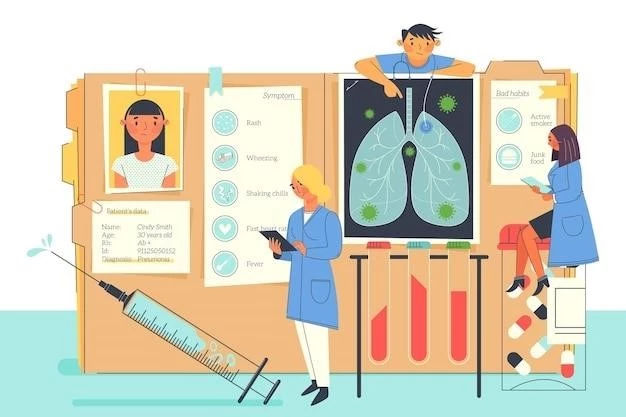Introduction
Sarcoidosis is a rare inflammatory disease that primarily affects the lungs, known as pulmonary sarcoidosis, leading to granulomas and potential lung scarring. The disease can present with various symptoms and may require treatment to manage complications.
Sarcoidosis is a rare inflammatory disease characterized by the formation of granulomas in various organs, with a high prevalence in the lungs known as pulmonary sarcoidosis. The condition, of unknown origin, commonly affects young adults and may involve multiple systems such as skin, eyes, and joints. Pulmonary sarcoidosis can manifest with symptoms like cough, shortness of breath, and fatigue, sometimes requiring treatment to prevent irreversible lung damage and complications like pulmonary fibrosis and hypertension. Diagnostic tools like pulmonary function tests play a crucial role in assessing disease severity and progression.
Clinical Features
Sarcoidosis can present with symptoms such as cough, shortness of breath, and fatigue due to inflammation and granuloma formation in the lungs. The disease may lead to complications like pulmonary fibrosis and hypertension.
Overview of Sarcoidosis
Sarcoidosis is a complex inflammatory disease characterized by the formation of granulomas, affecting multiple organs. In pulmonary sarcoidosis, these granulomas primarily impact lung function. Common symptoms include cough, shortness of breath, and fatigue, requiring careful management to prevent complications like pulmonary fibrosis and hypertension. Treatment approaches vary depending on the severity and progression of the disease.

Diagnostic Approaches
Diagnosing pulmonary sarcoidosis involves various approaches, including imaging studies, lung function tests, and sometimes biopsy to confirm the presence of granulomas in the lungs.
Presentation in Pulmonary Sarcoidosis
Pulmonary sarcoidosis often presents with symptoms like cough, shortness of breath, and fatigue due to inflammation and granuloma formation in the lungs. In severe cases, it can lead to complications such as pulmonary fibrosis and hypertension, impacting lung function and overall health.
Treatment Options
Treatment for pulmonary sarcoidosis may include medications like prednisone to manage inflammation and granuloma formation in the lungs, aiming to prevent complications and preserve lung function.
Management Strategies for Pulmonary Sarcoidosis
Managing pulmonary sarcoidosis involves a combination of medications like corticosteroids to reduce inflammation, lifestyle modifications, and regular monitoring of lung function to track disease progression. In severe cases, advanced treatment options such as lung transplantation may be considered to improve long-term outcomes.
Complications
Untreated pulmonary sarcoidosis can lead to permanent scarring in the lungs (pulmonary fibrosis) causing breathing difficulties and pulmonary hypertension.
Pulmonary Fibrosis in Sarcoidosis
Untreated pulmonary sarcoidosis can lead to permanent scarring in the lungs, a condition known as pulmonary fibrosis. This scarring can cause breathing difficulties and may result in pulmonary hypertension, impacting lung function and overall quality of life for the individual.
Prognosis
The prognosis of pulmonary sarcoidosis varies, with some cases resolving spontaneously, while others may progress to chronic or severe forms, potentially leading to permanent lung damage.
Chronicity and Progression of Pulmonary Sarcoidosis
Pulmonary sarcoidosis can have a variable clinical course, with some individuals experiencing spontaneous resolution, while others may develop chronic or progressive disease leading to lung damage. Regular monitoring and appropriate management strategies are essential to address the potential long-term implications of the condition.
Research and Developments
Recent developments in the treatment of pulmonary sarcoidosis include innovative therapies such as chitinase inhibitors like OATD-01, showing promise in managing the disease and its complications.
Orphan Drug Designation for Sarcoidosis Treatments
Molecure received orphan drug designation (ODD) from the US Food and Drug Administration (FDA) for OATD-01 to treat sarcoidosis and idiopathic pulmonary fibrosis. This designation highlights the potential of innovative therapies in addressing challenging diseases like pulmonary sarcoidosis.
Epidemiology
Sarcoidosis is a globally prevalent disease affecting both men and women, with an estimated incidence of 5-50 cases per 100,000 population. The most common complication of sarcoidosis is pulmonary fibrosis, leading to significant impairment of lung function.
Global Prevalence of Pulmonary Sarcoidosis
Pulmonary sarcoidosis is a globally recognized condition that affects individuals worldwide, with incidence rates estimated to range from 5 to 50 cases per 100,000 population. This disease predominantly impacts individuals between the ages of 25 to 45 and can lead to significant impairment in lung function, particularly when complicated by pulmonary fibrosis.
Impact on Quality of Life
Pulmonary sarcoidosis, if left untreated, can significantly impact an individual’s quality of life by causing breathing difficulties, chronic cough, fatigue, and potential complications like pulmonary fibrosis and hypertension.
Functional Impairment and Disability in Pulmonary Sarcoidosis
Pulmonary sarcoidosis can lead to functional impairment due to breathing difficulties, fatigue, and reduced lung capacity, impacting daily activities and overall quality of life. In severe cases, the disease can cause disability and necessitate management strategies to improve respiratory function and alleviate symptoms.

Future Directions
Continued research aims to develop novel therapies like OATD-01, a chitinase inhibitor, showing promise in treating pulmonary sarcoidosis and improving patient outcomes.
Innovative Therapies and Clinical Trials for Pulmonary Sarcoidosis
With ongoing advancements in the field of medicine, innovative therapies like chitinase inhibitors such as OATD-01 are being developed and tested in clinical trials for their efficacy in treating pulmonary sarcoidosis. These new treatment approaches offer hope for improved outcomes and quality of life for individuals affected by this challenging disease.
